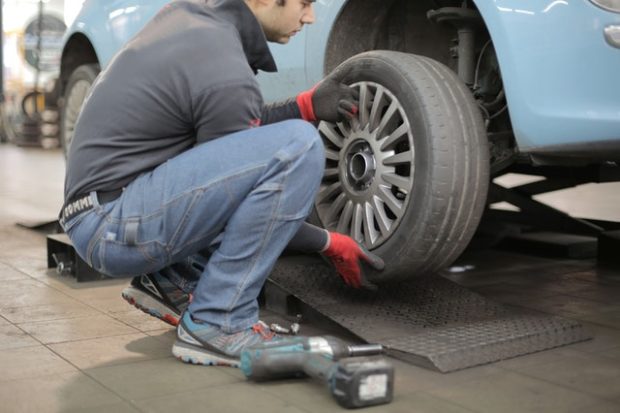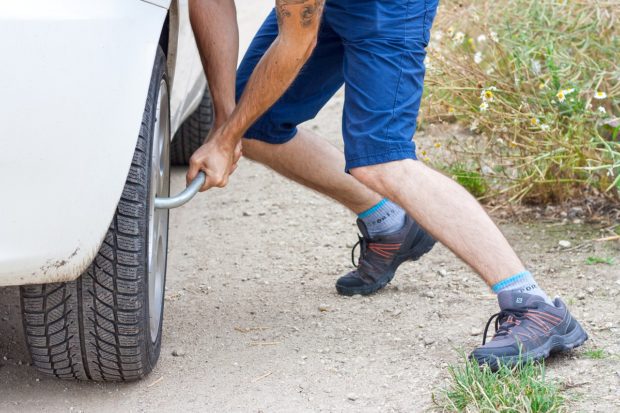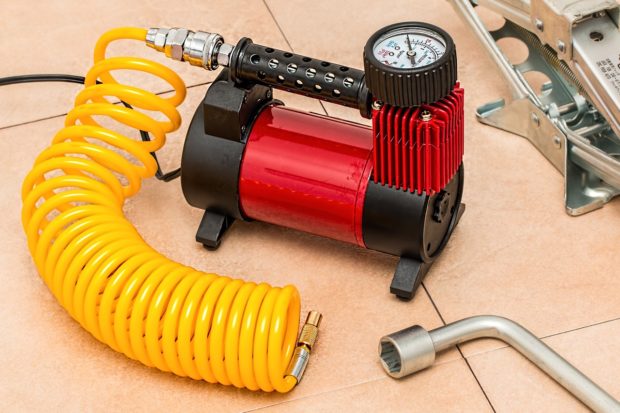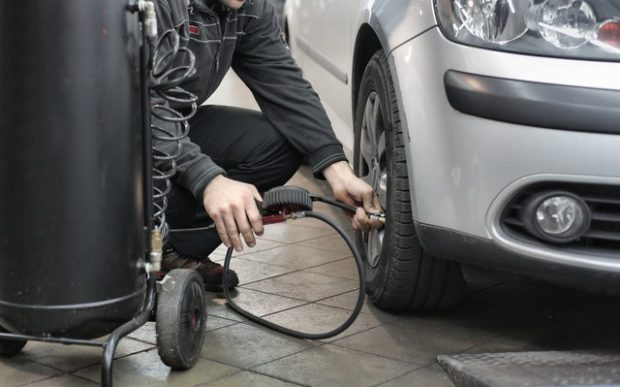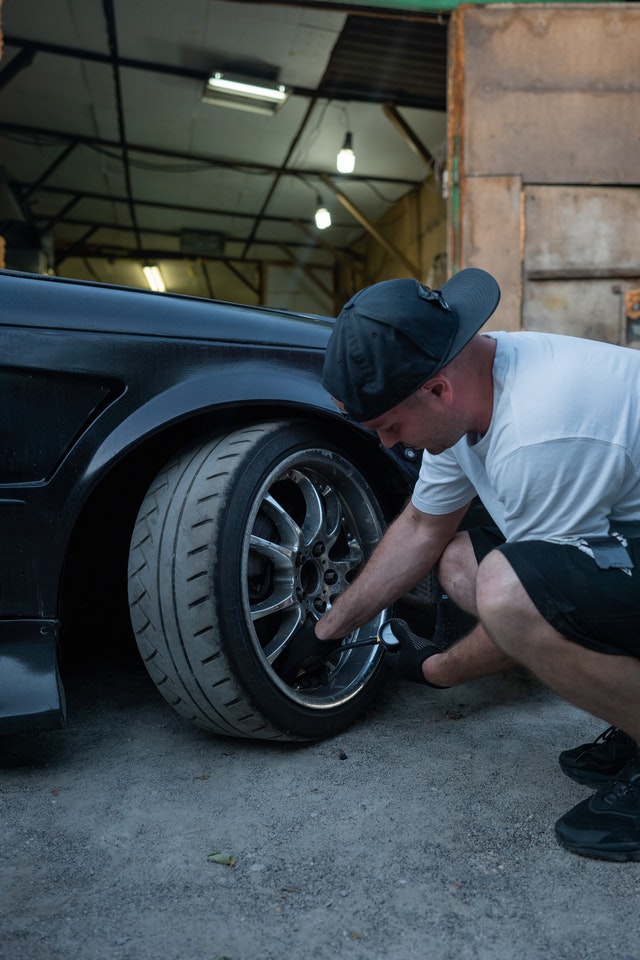Driving a vehicle with four wheels is fairly easy. When one of the tires on those wheels pops, though, it will quickly bring you to a stop. If you ever find yourself in a situation where you have a popped tire and there isn’t a mechanic nearby, it’s good to know how to be able to fix the tire. Although this procedure won’t fix every tire, it will help you work through a majority of roadside emergencies.
Locate the Leak
No matter which method of tire repair you choose, you’ll need to locate the leak. Finding the leak will allow you to assess the size of the hole so that you can figure out the best repair procedure. To find the leak, simply fill the tire with air to its full capacity. Then, with the car on a jack, slowly rotate the tire. If you have soapy water, you can pour it on your tire and look for bubbles. Otherwise, you can perform a close visual inspection until you find the hole.
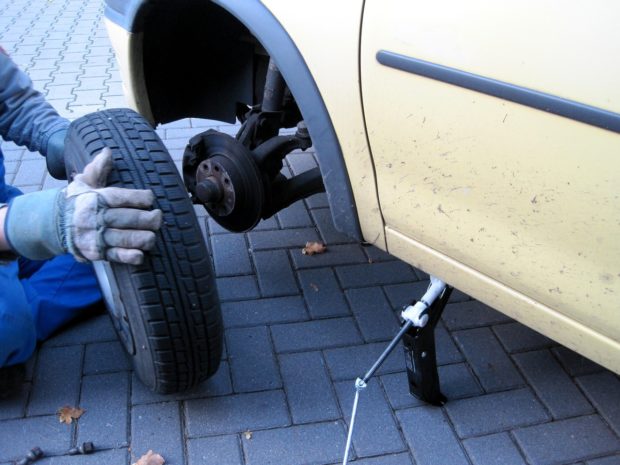
Remove the Offender
In many cases, you’ll discover that a nail or screw is in your tire and is causing the tire to leak. You will need to remove this debris before you can repair the tire. In some situations, you may be able to remove the debris by hand. However, a pair of pliers makes the job much easier and helps to keep your hands cleaner. Make sure to throw away the debris so that you don’t accidentally run over it again.
Choose Your Method
For the typical car owner, there are two types of tire repair methods to choose from: plugs and sealants. Plugs are best for larger holes because they require you to be able to push the plug into the tire. Sealants, on the other hand, are best for nail and screw punctures because they seal the tire from the inside and work on any size hole. Carefully follow the manufacturer’s instructions and take your time to ensure a solid repair.
Fill the Tire
After the repair is complete, you’ll need to re-fill your tire with air. When the tire is full, make sure to continue to check for any air leaks in case there are other holes that you’ve missed. After confirming that there are no more leaks, try to drive slowly for a few minutes to ensure that the repair will hold.
Replacement Necessary
Repairs that you perform yourself are safe to drive on once they’re complete. However, over time, the tire can weaken around the location of these repairs. That means you’ll want to start saving for a new set of tires so that you’re ready to act when your car needs some new rubber.
